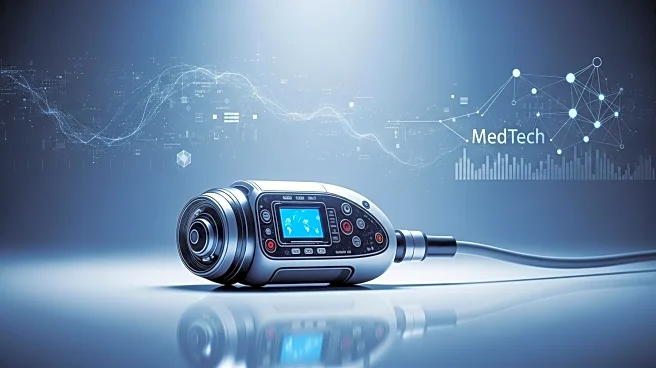What's Happening?
The medtech industry is gearing up for a series of significant conferences in 2026, offering professionals opportunities to engage with the latest developments in medical technology. Key events include the American Academy of Orthopaedic Surgeons' annual meeting in New Orleans, DeviceTalks in Boston, and AdvaMed's annual conference, among others. These gatherings will cover a range of topics such as robotic surgery, diabetes technology, heart devices, and artificial intelligence in healthcare. The conferences aim to bring together industry leaders, researchers, and professionals to discuss advancements, share insights, and foster collaboration across the sector.
Why It's Important?
These conferences are crucial for the medtech industry as they provide a platform for innovation, networking, and knowledge sharing. They enable professionals to stay updated on technological advancements and regulatory changes, which can impact product development and market strategies. The events also facilitate partnerships and collaborations that can drive growth and innovation in the sector. By attending these conferences, stakeholders can gain insights into emerging trends and technologies, helping them to remain competitive in a rapidly evolving industry.
What's Next?
As the dates for these conferences approach, medtech companies and professionals are likely to prepare by aligning their strategies with the themes and topics to be discussed. Companies may focus on showcasing their latest innovations and engaging with potential partners and investors. The outcomes of these conferences could influence future product development, regulatory approaches, and industry standards. Stakeholders will be watching closely to see how discussions at these events shape the direction of the medtech industry.
Beyond the Headlines
The emphasis on topics like artificial intelligence and diabetes technology at these conferences highlights the industry's focus on addressing critical healthcare challenges. The integration of AI in medical devices and diagnostics represents a significant shift towards more personalized and efficient healthcare solutions. Additionally, the focus on diabetes technology underscores the growing need for innovative solutions to manage chronic conditions. These developments could lead to improved patient outcomes and reduced healthcare costs in the long term.









